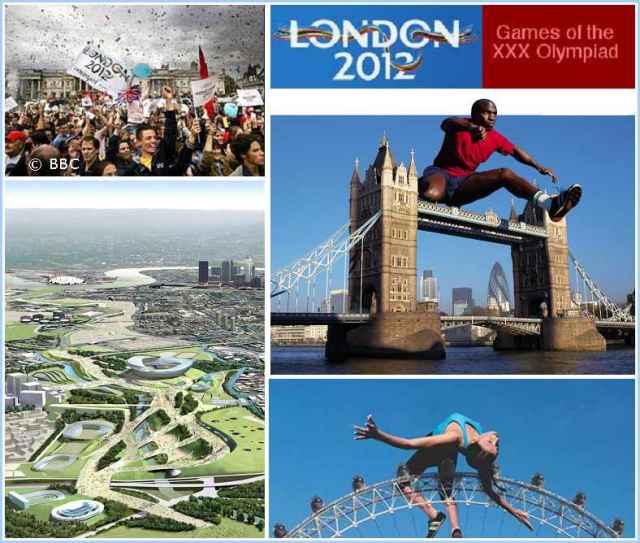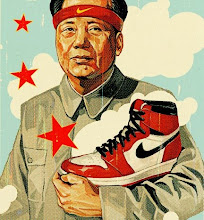I read all the articles I could find online from Foreign Policy, Time and other sources to give me a sense of public discourse on the subject. Not only did I find more ideas for future blog posts, it gave me a feel for how the US viewed this visit and what the media wanted to accomplish.
The thing that most stood out before President Hu's arrival was the inclusion of a media press conference held with Obama. Multiple media sources stated that this was a concession the Chinese had to make in order to "get the State dinner." It would also be a symbol for human rights and free press to see the red China president take questions from a free media.
As the official "day of pomp and ceremony" arrived, I waited for the highly anticipated joint press conference. After brief opening statements from both leaders, 2 US and 2 Chinese reporters would be called to ask questions.
When the 1st US reporter began to ask his question, I knew it would be on the issue of human rights. It fit perfectly with the "finally, we can put him on the spot" mindset established in the US media. After the reporter asked his long question to Obama, he asked Hu:
How do you justify China's record, and do you think that's any of the business of the American people?In reality, this was a softball question. It fits perfectly with (what I believe) the established Chinese answer:
A major part of human rights is providing citizens with food, shelter, jobs, healthcare, ect. and China has done that by lifting 500 million people out of poverty in the past (whatever) years. And no, its not any of your business because we believe in non-interference wrt other countries' internal affairs.However, as I anticipated this answer when Obama first finished his, there was only silence. Hu Jintao didnt answer the question?! Instead he stood their with a confused look while the US media waited for his answer. After a brief silence, he went on to take a question from the next Chinese reporter.
I personally never thought he tried to dodge it. The question was too easy. Instead, I thought that he probably didnt hear it. After the first question was raised in English, Obama answered in a long monologue. Only after that was there a translation of the question and Obama's answer. The translator also SUCKED! Not only did he constantly stumble on his Chinese through out the press conference, he translated many things wrong and omitted a lot of content.
However, if Hu didnt answer the question, I knew there would be a problem. The major news in the media following would focus on it and say, "we put him on the spot and he just dodged it", "thats what an commie does" and "thats why the US system is so much better", ect. That would be terrible for China's rep.
Thankfully, the 2nd American reporter addressed the initial human rights question. After explaining he didnt hear it initially, President Hu gave his answer.
Thank god he answered it or all hell would've broke loose or will it anyways?
Today, while reading coverage of the visit online, I stumbled on Dana Milbank's op-ed piece on the Washington Post. The response and description of the press conference from the day before was exactly what I had anticipated.
Something about human rights just doesn't translate for Chinese President Hu Jintao.
President Obama granted him the full state-dinner treatment that President George W. Bush denied him five years ago - but in return, Hu had to put up with a news conference, which he had refused to do when Obama visited China. For a repressive ruler, facing a free press is about as pleasant a prospect as attending the Nobel Peace Prize ceremony.
After the leaders' standard opening statements full of the blah-blah about bilateral cooperation, the Associated Press's Ben Feller rose and asked a gutsy, forceful question.
Obama answered. The translator translated. All eyes turned to Hu - who said nothing.
Instead, he looked to a woman from China Central Television - the state-run network that answers to the Communist Party's propaganda department - who tossed him a softball about "friendship and mutual understanding."
But the next questioner, Bloomberg's Hans Nichols, gave Hu a lesson in press freedoms (by addressing the first not-answered question).
In Beijing, that impertinence would get a reporter jailed. But Hu wasn't in Beijing. During the translation of Nichols's question, Hu held a palm up and smiled, as if he couldn't see what all the fuss was about. "Because of the technical translation and interpretation problem, I did not hear the question about the human rights," he explained - falsely, as it turns out.
It was a good moment for the American press. Feller and Nichols put the Chinese leader on the spot in a way that Obama, constrained by protocol, could not have done. On Wednesday afternoon, Obama and the press corps were justifiably on the same side, displaying the rights of free people.
Hu, however, ignored that question in favor of the gentler one from his employee at Chinese television. As luck would have it, Hu was perfectly prepared for the question, and, in his reply, looked down to read statistics from his notes.
Reporters glanced at each other, puzzled over Hu's ignoring of Feller's question. During the interminable translation into Mandarin of Hu's answer to the Chinese reporter's question, Obama flashed a grin at Gibbs.
Hu, his forehead shining, had another plant waiting in the crowd, a reporter from the state-run Xinhua news agency. But before Hu could get that lifeline tossed his way, the microphone went to the American side, where Nichols demanded an answer to the human-rights question. This time, Hu couldn't claim it was lost in translation.
"China is a developing country with a huge population and also a developing country in a crucial stage of reform," he explained. "In this context, China still faces many challenges in economic and social development, and a lot still needs to be done in China in terms of human rights."
No wonder Hu doesn't like questions: He might have to give an honest answer.
Of course it was a good moment for the US press. You posed a hard hitting question and made the President of China squirm. You made him sweat and succumb to the demands of the righteously free media. USA! USA! USA!








